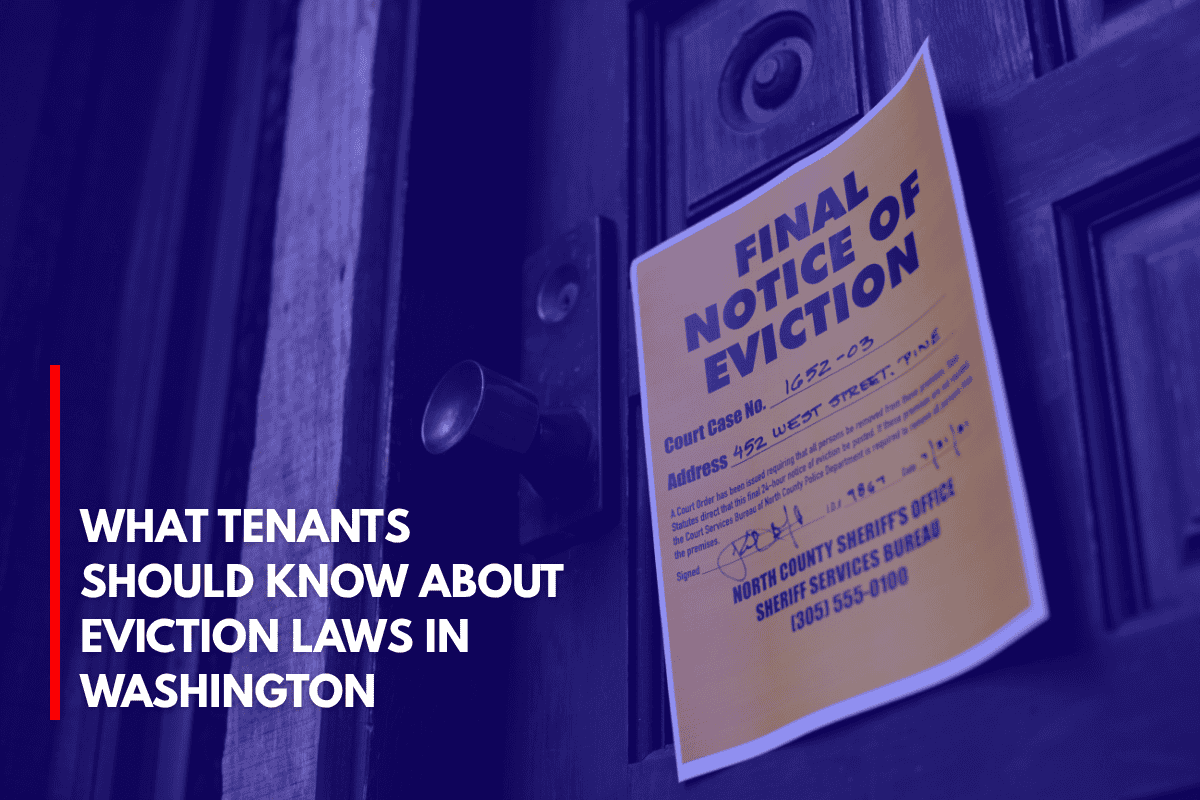Tenants in Washington State should understand their rights and responsibilities under state eviction laws to protect themselves and respond effectively if faced with an eviction. Here’s what you need to know:
Legal Grounds for Eviction
Washington law requires landlords to have a valid legal reason to evict a tenant. The most common grounds include:
Nonpayment of rent: If you fail to pay rent on time, the landlord can start the eviction process.
Lease violations: This includes unauthorized occupants, property damage, or other breaches of your lease agreement.
Illegal activity or nuisance: Engaging in illegal activities on the property or causing a nuisance may result in eviction.
End of lease term: If your lease is up and the landlord does not wish to renew, you may be asked to move out.
There are 17 specific legal reasons for eviction under state law, including reasons such as the landlord needing the property for their own use, selling the property, or converting it to a different use.
Notice Requirements
Landlords must provide written notice before starting the eviction process. The type and length of notice depend on the reason for eviction:
Nonpayment of rent: 14-day notice to pay or vacate.
Lease violations: 10-day notice to correct the violation or vacate.
Unlawful activity or nuisance: 3-day unconditional notice to quit (no opportunity to fix the issue).
End of month-to-month tenancy: 20-day notice (or 60-day notice for “no-cause” evictions in some cases, such as for month-to-month tenancies after a recent law change).
The notice must be properly served, which typically means delivering it in person, posting it on the premises, and mailing a copy.
The Eviction Process
Notice: Landlord serves the required notice.
Failure to Comply: If you do not pay rent, fix the violation, or move out within the notice period, the landlord can file an eviction lawsuit (unlawful detainer action).
Court Hearing: You will receive a summons and complaint. You have the right to respond and attend a court hearing.
Judgment: If the judge rules in favor of the landlord, you will be given a set amount of time to move out (usually 3–5 days after the writ is issued).
Enforcement: If you do not leave, the sheriff can forcibly remove you from the property.
Tenant Rights and Protections
Right to Defend: You have the right to defend yourself in court and present evidence or arguments.
Right to Legal Assistance: Low-income tenants may qualify for free legal help.
Documentation: Keep records of all communications, notices, and payments to protect yourself in case of a dispute.
No Self-Help Evictions: Landlords cannot lock you out, shut off utilities, or remove your belongings without a court order.
Key Takeaways
Landlords must have a legal reason to evict you and must follow strict notice and court procedures.
You have the right to receive proper notice and to defend yourself in court.
If you receive an eviction notice, review it carefully, respond within the deadlines, and seek legal advice if needed.
Keep detailed records of all interactions with your landlord.
Understanding these laws helps tenants navigate eviction situations and protect their rights in Washington State.
Sources:
- https://rentsafe.lease/washington-state-eviction-laws/
- https://www.washingtonlawhelp.org/en/eviction-notices
- https://www.hemlane.com/resources/washington-eviction-laws/
- https://propertymanagersseattle.com/washington-state-eviction-process/











Leave a Reply